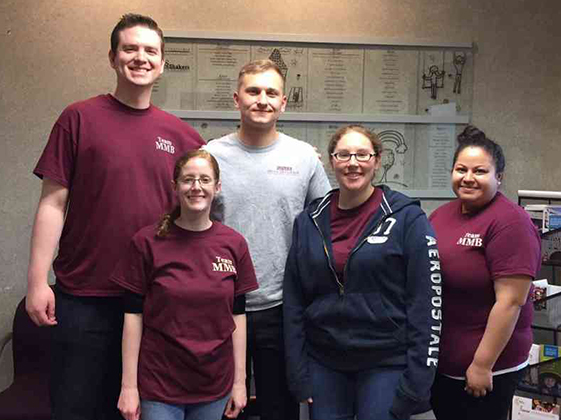Success as Kids and Success as Adults - How Do We Define It?

By Caitlin Orbanek, SEL Center Project Coordinator
As we were exploring the idea of defining success as this month’s SEL Center theme, I kept thinking back to the year after I finished my graduate degree, and how strange it felt at that time to believe that I was suddenly a “successful adult.” My friends and I had multiple different conversations about it – how did we know we were doing all right? How did we know we were on the right track? At that time, at age 24, I had been a student for 19 years of my life. How did I know I was doing well enough when I wasn’t receiving a letter grade on the different areas of my life every three months?
It’s a question that really drove this month’s theme for me: the necessity for adults who work with kids to teach those kids how to define success for themselves. Young people cannot only find success in the classroom. Those young people who struggle for classroom success, or never really get to feel good as a student, cannot be excluded from feeling successful in life. To that end, when I had the opportunity to talk with a group of service volunteers at our Children’s Institute office recently, I knew I wanted to learn about their own experiences feeling successful, and what drove that feeling for us as children.
During all of their hauling and sorting, I was able to get a few minutes of their time to discuss the idea of success, to get their perspective on how we define success as young people, and how we define success as adults.
It was definitely an unconventional use of volunteer time, but there is so much to be found in these conversations around how we can help young people find validation and drive in a culture where they are increasingly isolated and disengaged.
We started out talking about a time we all felt successful as young people. I asked them to think back to a non-academic success they experienced, what it felt like, and what helped them identify that it was success they were feeling. Their responses are enough to spur reflection in all of us – from a child’s perspective, the things that stick in our minds can be truly surprising! We heard about:
-
The sixth grader who finished not one, but two word searches before any of her classmates, and earned a candy bar reward.
-
An eagle scout who worked his way through scouting for over nine years, and whose service career culminated in a partnership project with the Volunteers of America.
-
The high school junior who was so inspired by organizing a food drive that he repeated it in his senior year and now works to find service opportunities as an adult.
-
A high school ambassador, whose adult mentors nominated her for an exclusive project, and who traveled to Australia and New Zealand to make new connections.
-
The elementary artist, whose work was displayed at the RCSD central office, inspiring her to chase more art and attend RCSD's High School for the Arts.
So often, we characterize student success through an academic lens – a straight A student is successful, and everyone else is working to get there too. It’s important to give young people opportunities to feel success for all the different ways they shine, because success is a feeling we want them to chase.
As adults, our group really felt that success comes down to stability and comfort. Comfort living with ourselves, and finding happiness in our everday lives. None of our group thought that success was defined by money, rather all of them felt that the ability to find contentment, self-love, and the time to pursue personal interests is where real success lies.
That, and maybe a pet dog!
Ultimately, our group thought of success as a list of things you can add to: life goals, milestones, skills, relationships, and experiences. The sooner in life we can help young people begin adding to their own lists, the more successful they will feel.
How do you celebrate success with your young people? Can you identify successes of the students you work with? Can the children you work with articulate and explain their own successes? How can we teach young people to find value in themselves beyond their academic performance?